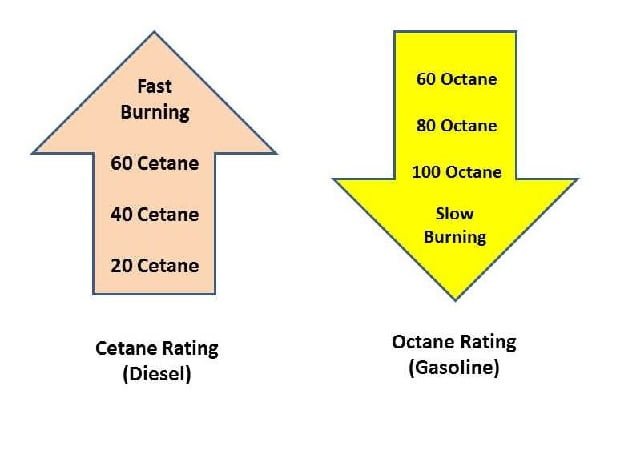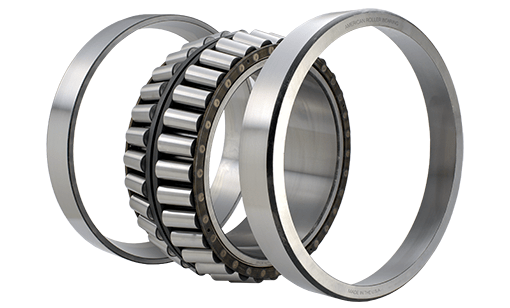Cetane may be a familiar name to many diesel equipment owners, but its entire meaning is unclear. Even if cetane isn’t always on your mind, disregarding it can be costly. Running equipment on diesel with a low cetane number can cause rough operation, loss of efficiency, excessive wear, and other issues.
What is Cetane?
Simply defined, cetane is a chemical component found in diesel that easily ignites under pressure. It is the industry-standard measure for evaluating fuel combustion quality due to its extreme flammability.
What is a Cetane Number ?
Cetane Number Definition :
The cetane number (CN) is a measure of how ignitable diesel fuels are. It shows the ignition delay, or the time it takes for diesel fuel to self-ignite when injected into hot air through the fuel injector.
The cetane number of a diesel fuel is a measure of it as an index of the Ignition Quality (Ignition delay characteristics ) of diesel fuel which defines the way combustion proceeds in the engine .
The cetane number is the most definitive way to describe the quality of the combustion process in a diesel engine. Higher cetane levels indicate a shorter ignition delay and, as a result, improved diesel engine performance. The injected fuel burns more uniformly and completely, resulting in better exhaust air quality, particularly in terms of soot, particulate matter, and unburned hydrocarbons.

The Ignition quality of fuel affects both the exhaust properties and combustion noise. When the ignition delay is long, such as when the cetane number is low, the majority of the injected fuel burns explosively. As a result, the typical loud diesel combustion noise (“knocking”) is produced.
The amount of cetane—a clear, colourless hydrocarbon that ignites under high pressures—in a particular diesel mixture determines its cetane rating. The maximum attainable purity of diesel fuel is pure cetane, which has a cetane rating of 100.
With a higher cetane number, the fuel ignites faster, resulting in less non-ignited fuels accumulating inside the combustion chamber and more complete fuel combustion. Because only misted fuel is ignited and accumulation inside the engine is avoided, better fuel combustion and quick ignition results in faster vehicle starting as well as a quieter engine.
It is used for compression engines. (C.I engine ). It is Shortly written as CN.
It is determined by comparing the Ignition quality of standard solution (cetane +Alpha -methyl Naphthalene ) with Ignition quality being tested.
It is the percentage of cetane contained in the standard solution which has an Ignition delay equalling the Ignition delay of fuel tested.
Good Ignition quality CN =100
Higher the CN ,Better is the fuel ,shorter is the Ignition delay, and easier id the starting of combustion.
CN varies from 35 to 55.
If density increase , CN decrease.
Cetane Rating (Cetane Number)
It is an indicator of combustion speed of Diesel Engine.
It is the measure of ignition quality of fuel.
If CN increases = (shorter the time between fuel injection and rapid combustion or pressure rise), better ignition quality.
Considered as poor fuel (if Cetane number < 37), usual range is 30-35.
It is an inverse function of a fuel’s ignition delay.
Only use for light distillate diesel oils, for heavy (residual) fuel oil two other scales are used : CCAI and CII.
Alkyl nitrites and Di-tert-butyal peroxide are used as additives to raise the Cetane number.
It is generally denoted by (CN).
It is used for CI Engine




